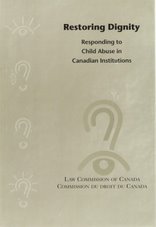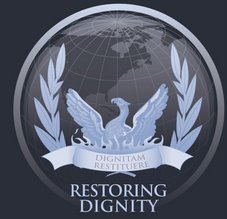
Statement Delivered at the Justice Minister’s Roundtable on Justice Issues
May 15, 2002 – Parliament Buildings, Ottawa Matthew Geigen-Miller, Director of Education and Communications National Youth In Care Network
http://www.youthincare.ca/
May 15, 2002 – Parliament Buildings, Ottawa Matthew Geigen-Miller, Director of Education and Communications National Youth In Care Network
http://www.youthincare.ca/
Mister Minister,
Thank-you for this opportunity to participate in today’s discussion. We have followed
the advice in the invitation to attend this meeting and have identified two key issues
which we will bring to your attention.
National Youth In Care Network is a unique youth-run organization. We are driven by
young people in and from “government care”. Most of our members come from the child
protection system, but we also have members with experiences in other forms of
government care such as mental health and young offender care. Our board of directors,
volunteers, leaders, and all of our staff – save one administrator – are young people, aged
14 to 24, who are or have been in care. There are over 62,000 children and youth in the
care of Canadian child welfare authorities. National Youth In Care Network was founded
in 1986, and incorporated in 1990 as a registered charity.
#1 – Victimization and Protection Under the Law
First, protection from victimization and abuse is a significant concern. Virtually all of
our members have been seriously victimized at some point. Most experienced child
abuse and family violence in the home – in many cases that is the direct cause of their
entry into the child protection system. Sadly, many more are victimized again within the
child protection system.
There are children across Canada, right now, who are being abused in child welfare foster
homes and group homes. They were taken out of their family homes by force – by no
choice of their own – and placed in the care of government child protection authorities.
They were separated from their families, natural advocates, and support networks. They
are both traumatized by abuse, and also stigmatized by it: Many people still
misunderstand the child welfare system, and believe, mistakenly, that children in foster
homes and group homes are “bad”, or have done something wrong. Plainly: these
children and youth are exceptionally vulnerable. The Law Commission of Canada report
on institutional abuse was a promising step, but more work is urgently needed. The
Department of Justice has a role to play in assisting our organization and others across
Canada in raising awareness of these problems, and in implementing measures to
improve prevention, detection and investigation, and prosecution of institutional abuse.
#2 – Access to Justice
Access to justice is a great concern for our members. For our members, access to justicemeans having a fighting chance at being heard when governments and courts make
decisions that have immediate and weighty impact on our lives.
At the individual level, children and youth need legal counsel in a variety of settings. We
are often un-represented in family court proceedings, which determine whether or not we
will become wards of the state. We are un-represented when we appeal decisions to
terminate services to us – decisions that could leave us out on the street before we reach
adulthood. And, we are un-represented when the child welfare authorities have been
abusive or negligent in their care for us. Deep cuts in many provinces’ legal aid
programs has made it more difficult than ever to secure adequate legal representation.
The right of participation in decisions for children in care is guaranteed, both in the UN
Convention on the Rights of the Child, and in each province’s child protection statute.
This right, however, is rarely invoked because legal counsel is not accessible.
At the systemic level, individual young people, youth in care groups and other
stakeholder groups are in desperate need of resources to challenge legislation and policies
that violate our basic rights. The federal government has, over the years, significantly
reduced transfer payments to the provinces for social welfare programs, and reduced
accountability measures for the funds that are now transferred. Accountability through
public reporting and transparency does not serve our members. We are a deeply
stigmatized group, and do not necessarily court public sympathy or favour. Thus, for
many of our members, justice and accountability can be achieved only through the courts.
It is the prerogative of this government to determine how much money will be transferred
to the provinces for social welfare programs, and whether or not strings will be attached.
However, we want the federal government to recognize that it has a duty to compensate
for this withdrawal of funding and accountability with a counter-weight. If this
government will not impose conditions on the provinces in return for funding, then, at the
very least, the Charter of Rights and Freedoms should act as a safeguard against rights
abuses. Federal funding, perhaps in a program similar to the current Court Challenges
Program, must be made available to ensure that disadvantaged groups have the
opportunity to participate in important court proceedings, and to ensure that charter
challenges to all laws – not just federal – are accessible to economically disadvantaged
individuals and groups.
We appreciate an opportunity to be heard and participate in this discussion. National
Youth In Care Network is hopeful that this discussion will mark the beginning, not the
end, of this dialogue.
Thank-you.




























No comments:
Post a Comment